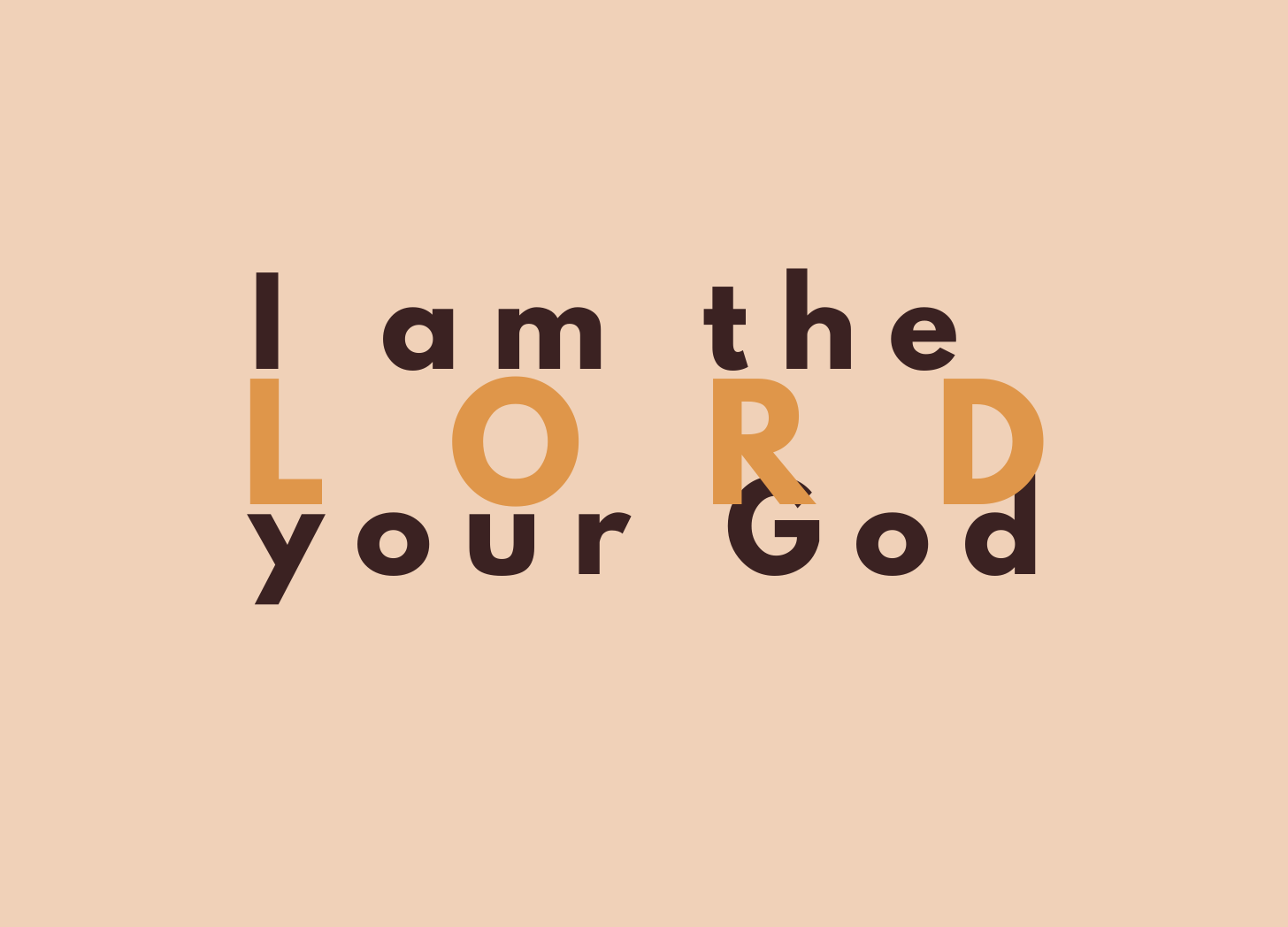Leviticus
Called to Kill Death
Many of the books in the Hebrew Bible start with the Hebrew word for “and.” I think this is a helpful connection to have in mind to start the book of Leviticus. It follows directly after Exodus and God is now speaking from the Tabernacle to Moses, rather than from up on the mountain. God seeks to be amongst His people. Leviticus in the Hebrew Bible has a different name as well. It goes by “and He called.” Leviticus is about calling the Israelites to be set apart (holy) for the LORD. Leviticus is about the call to holiness, which is often a lost conversation in our life today. But we should not be afraid of Leviticus, where Bible reading plans go to die, since this book is God’s Word. Along with the Psalmist in Psalm 119, from which this blog takes its name, we should praise the goodness of the Law (Torah) of the Lord. The Psalmist praises the freedom, joy, and goodness of God’s law, instead of treating it as the shackles of legalism. How can this be? Leviticus is God’s Word. It coincides with how God is revealed throughout the rest of the Bible, even if it is hard for us to see that.
Making Sense of Leviticus
Leviticus carries with it some important calls to holiness that we find in the New Testament. “Love your neighbour as yourself” is found in Leviticus 19:18, while in the same chapter in verse two we read “Be holy because I, the LORD your God, am holy.” These verses were seeped into the mind of Jesus forming a large part of His world. Matthew 5:48 states, “Be perfect, therefore, as your heavenly Father is perfect.” Sounds similar to Leviticus right?
Leviticus is a world forming book. What I mean is that through the rituals, offerings, laws, and sacrifices Israel is learning a new language of doing life together. Through their shared rituals and laws, Israel is defining the way the world works. Identifying and classifying what is good versus what is bad. And this is not simply arbitrary laws to have a shared sense of purpose, rather these stipulations push back against the forces of death by creating a shared understanding of the world. At the centre of this world is God, the force of life and all goodness in this world. God has called Himself a people to dwell with and participate in the elimination of death in this world. These laws are to nurture an environment in which God is worshipped, regarded as holy, and seen accurately for who He is. A necessary step in that process is to push away against that which brings death. Holiness kills death and anything that death has touched.
Israel is a nation bent on eliminating the stench of death as they become holy, life filled, to fight against the forces death. Death needs to die. Holiness kills. It is into this world that Leviticus seeks to shape the Israelites. To be holy as their heavenly Father is holy so that death will die. So that God’s life may once again fill the earth like it did in the Garden of Eden.
Laws
Each of the laws nurture the environment where death is pushed back. This is why it often revolves around what is dead. You become unclean when you touch a dead body. Disease (death bringing) is unclean. Discharges from the human body is unclean because it dies outside of you. Animals that scavenge on carcasses are dead because they eat unclean corpses. Mold is unclean since it destroys and causes decay.
Imagine going to a hospital in need of urgent care. Think through each step of arriving there and being horrified that this hospital is not particularly clean. There is dirt everywhere on the floors. And in the ER people are being treated without gloves and with rusty equipment. But you are in urgent need and have to find out whats going on. A barrage of tests later, none of which seem hygienic whatsoever, you are informed that you need surgery ASAP. Now, with how this hospital looks, the chance of infection is high and you are simply disgusted by the idea of surgery in this place. You are risking your life by staying in this death trap. Hospitals, rightly so, wage a war on germs and disease. Unseen dangers of death. They have strict laws and regulations around the upkeep of their equipment, the proper use of their materials, and how clean they themselves have to be to perform surgeries or administer injections. A hospital is a holy (set apart) place for cleanliness because of how crucial cleanliness is to healing. And they not only enforce cleanliness in hospitals, but evangelize to others how important it is to live clean at home. Washing our hands so often is rather modern.
The germs and diseases that Leviticus is fighting is sin and death. These laws and rituals are the necessary regulations to be holy (set apart) so that the often unseen effects of death may be fully and completely dealt with. They are not given arbitrarily by God to give us a burden so heavy that we die under its weight. Rather, much like doctors would advise us on how to let our bodies flourish, God provides laws for people to flourish. What does that look like? Having relationship with God. Being with God and worshipping Him.
The Source for these Laws
Leviticus 19 is a good example of a phrase you find throughout the book. “I am the LORD your God” is repeated multiple times after a law is given. The LORD is the one from which these laws come from. They are not man made. They flow out from God’s character, which makes it especially hard to wrestle with these texts. God is so far beyond our understanding. More loving, kind, just, merciful, powerful, and caring than we can imagine. He is Holy. Set apart far beyond what we can even dream. From Him flows all things good. From Him the universe is kept moving. Without Him, everything would cease to exist.
The New Testament Connection
When Jesus heals people, He is healing what is unclean. In the NT Gospels, we get a picture of how Jesus’ holiness pushes back against what is unclean. Those who are blind, deaf, possessed, skin diseases (like leprosy), and also the women who had been bleeding for years, are “touched by death” and therefore avoided since they are “contagious.” Jesus steps into this world and touches those who are unclean, making them clean. His Holiness overpowers the touch of death on these people. Jesus healing people is a battle against death. And He invites you to join this fight. Through His life, death, and resurrection, Jesus has killed death. Death is defeated. But death is slow to realize that. In many ways, our lives are still touched by death and sin. And the call we have, to be priests, is to push against these forces of death working in our lives and in the lives of those around us. How do we do this? By trusting in the finished work of Jesus Christ our Lord and Saviour. By living the call He has invited us to so that our lives are marked by mercy, love, grace, kindness, goodness, and truth. Will you participate in killing death?
P.S. Throughout this post on death I thought often of what Davy Jones says in Pirates of the Caribbean 2, “Do you fear death? Do you fear that dark abyss? All your deeds laid bare, all your sins punished?” As Christians, we can say with confidence, death is defeated, my sins are forgiven.




